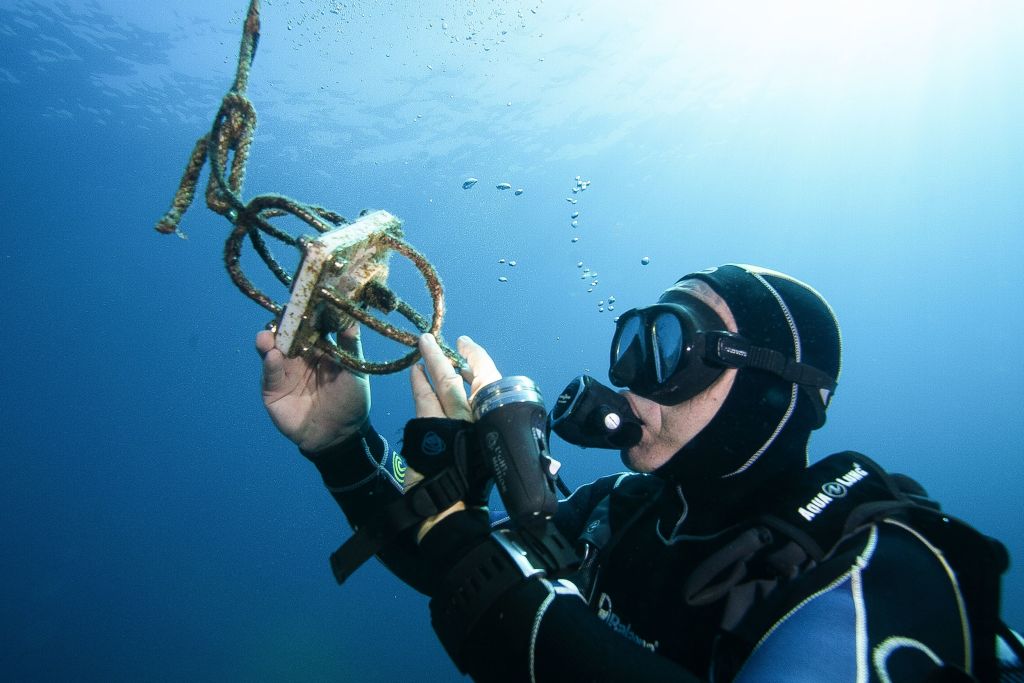ADF STAFF
Illegal fishing is decimating South Africa’s once-thriving stocks of abalone, rock lobster and other marine species.
As in other coastal nations, vessels engaged in illegal, unreported and unregulated (IUU) fishing in South Africa routinely sail into prohibited waters, catch huge amounts of fish — often with illicit gear — then transfer their catches to large, factory-size vessels farther out at sea.
IUU fishing costs the nation billions of rand, harms ecosystems critical to the survival of marine life and leaves artisanal fishermen with empty nets. Illegally caught marine resources in South Africa often are exported to Hong Kong.
Carmen Oquendo Pabón, an artisanal fisherman in the Overberg region of the Western Cape, told South African newspaper Mail & Guardian in 2021 that his daily catch had diminished greatly over the previous three years. He said he once caught enough fish, crabs and prawns to support his family and “never returned empty-handed.”
The increasing presence of much larger industrial trawlers changed his life.
“In my 26 years in this business, the last few years have been the worst,” Pabón told the newspaper. “We are trying to do whatever we can to make ends meet here.”
Illegal fishing in South Africa seldom happens during the day.
“Local fishers tell me, however, that at night it looks like little towns on the water over the horizon, as the IUU vessels enter the EEZ [exclusive economic zone] and fish illegally,” Hennie van As, director of the Centre for Law in Action at Nelson Mandela University in Eastern Cape, told ADF in an email.
Van As and his colleagues at the university’s FishFORCE Academy aim to use technology to eradicate IUU fishing and spotlight organized crime syndicates behind the scourge. Southern and East Africa lose an estimated R12.2 billion (more than $717 million) to IUU fishing annually, according to research by the United Nations Food and Agricultural Organization (FAO).
In South Africa, IUU fishing also is linked to human trafficking, money laundering, and drug and cigarette smuggling.
Channeling Technology
Van As, the academy’s founder and director, and Michael de Lange, its chief operating officer, recently visited Australia’s Commonwealth Scientific and Industrial Research Organisation (CSIRO) in Tasmania, where sound-detecting technology known as hydrophones are used to alert authorities of suspicious sea activity.
Hydrophones can record sounds ranging from scuba diving bubbles to vessel engines to explosives used in blast fishing. Hydrophones send a warning signal to computer systems operated by law enforcement agencies if sounds indicate that there is possible crime in or near a marine protected area (MPA).
By the end of 2022, hydrophones will be strategically submerged in MPAs around South Africa through a pilot project that CSIRO will help fund.
FishFORCE also is collaborating with Sea Monster, an immersive technologies company in Cape Town, to develop a virtual game designed for fisheries law enforcement officers. The game will present officers with a range of scenarios meant to teach them how to conduct vessel inspections so that they don’t lose illegal fishing cases on technicalities.
The game will be available to the academy’s partners: Comoros, Kenya, Madagascar, Mauritius, Mozambique, Namibia, Reunion, Seychelles and Tanzania. A prototype should be available this year, van As wrote in Daily Maverick.
Strengthening Port Measures
FishFORCE also advocates for all nations in the region to implement and strengthen the FAO’s Port State Measures Agreement (PSMA). The agreement’s objective is to halt illegal fishing by preventing vessels engaged in IUU fishing from using ports to land their catches.
This year, the academy partnered with Stop Illegal Fishing to host PSMA training workshops in Kenya, Mozambique and Tanzania.
“The use of South African ports by distant fleets which engage in IUU fishing is an example of the need for stronger implementation of port state measures,” van As wrote in Daily Maverick. “Inspections in ports undertaken as multi-agency efforts are key for addressing illicit activities in fishing in a cost-efficient manner.”
To properly implement the PMSA and effectively control IUU fishing in South Africa and around the region, van As and other experts say more patrol vessels and fisheries control officers, and greater cooperation among law enforcement agencies, is needed. Van As and others also have called for much stricter penalties related to illegal fishing.

